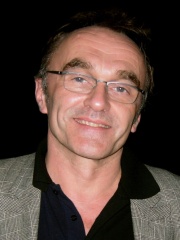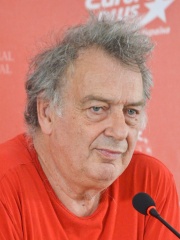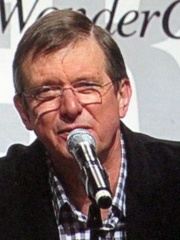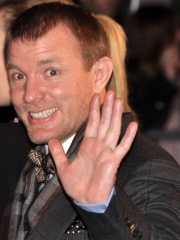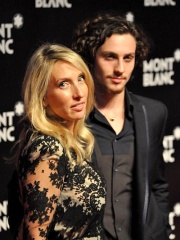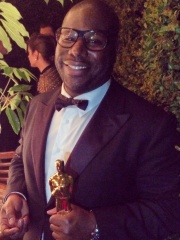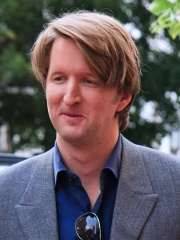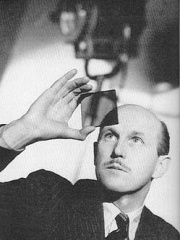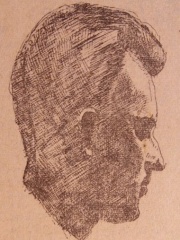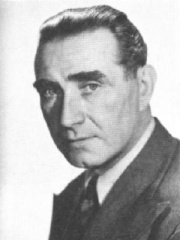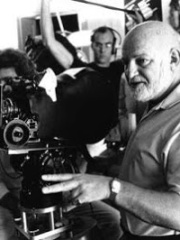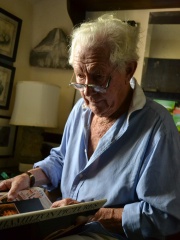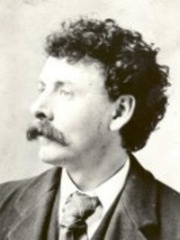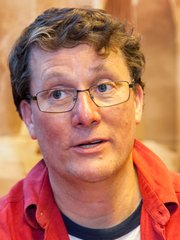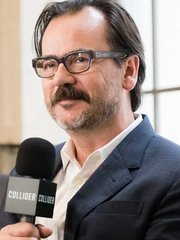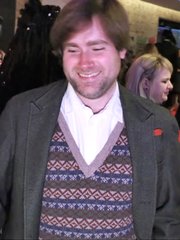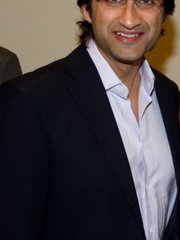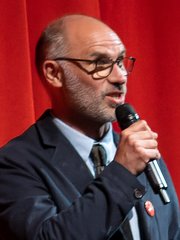

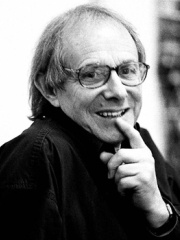
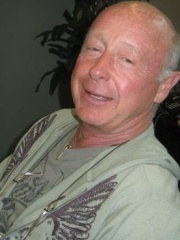
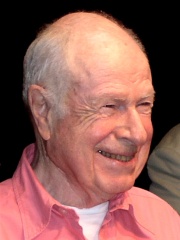
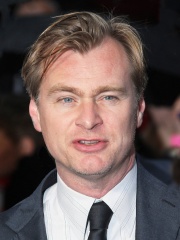
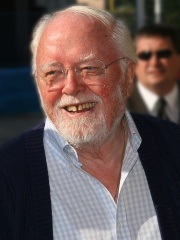
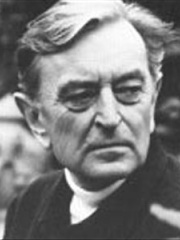
The Most Famous
FILM DIRECTORS from United Kingdom
This page contains a list of the greatest British Film Directors. The pantheon dataset contains 2,041 Film Directors, 175 of which were born in United Kingdom. This makes United Kingdom the birth place of the 3rd most number of Film Directors behind United States, and France.
Top 10
The following people are considered by Pantheon to be the top 10 most legendary British Film Directors of all time. This list of famous British Film Directors is sorted by HPI (Historical Popularity Index), a metric that aggregates information on a biography's online popularity. Visit the rankings page to view the entire list of British Film Directors.

1. Alfred Hitchcock (1899 - 1980)
With an HPI of 82.16, Alfred Hitchcock is the most famous British Film Director. His biography has been translated into 145 different languages on wikipedia.
Sir Alfred Joseph Hitchcock (13 August 1899 – 29 April 1980) was an English filmmaker. He is widely regarded as one of the most influential figures in the history of cinema. In a career spanning six decades, he directed over 50 feature films, many of which are still widely watched and studied today. Known as the "Master of Suspense", Hitchcock became as well known as any of his actors thanks to his many interviews, his cameo appearances in most of his films, and his hosting and producing the television anthology Alfred Hitchcock Presents (1955–65). His films garnered 46 Academy Award nominations, including six wins, although he never won the award for Best Director, despite five nominations. Hitchcock initially trained as a technical clerk and copywriter before entering the film industry in 1919 as a title card designer. His directorial debut was the British–German silent film The Pleasure Garden (1925). His first successful film, The Lodger: A Story of the London Fog (1927), helped to shape the thriller genre, and Blackmail (1929) was the first British "talkie". His thrillers The 39 Steps (1935) and The Lady Vanishes (1938) are ranked among the greatest British films of the 20th century. By 1939, he had earned international recognition, and producer David O. Selznick persuaded him to move to Hollywood. A string of successful films followed, including Rebecca (1940), Foreign Correspondent (1940), Suspicion (1941), Shadow of a Doubt (1943) and Notorious (1946). Rebecca won the Academy Award for Best Picture, with Hitchcock nominated as Best Director. He also received Oscar nominations for Lifeboat (1944), Spellbound (1945), Rear Window (1954) and Psycho (1960). Hitchcock's other notable films include Rope (1948), Strangers on a Train (1951), Dial M for Murder (1954), To Catch a Thief (1955), The Trouble with Harry (1955), Vertigo (1958), North by Northwest (1959), The Birds (1963), Marnie (1964) and Frenzy (1972), all of which were also financially successful and are highly regarded by film historians. Hitchcock made a number of films with some of the biggest stars in Hollywood, including four with Cary Grant, four with James Stewart, three with Ingrid Bergman and three consecutively with Grace Kelly. Hitchcock became an American citizen in 1955. In 2012, Hitchcock's psychological thriller Vertigo, starring Stewart, displaced Orson Welles' Citizen Kane (1941) as the British Film Institute's greatest film ever made based on its world-wide poll of hundreds of film critics. As of 2021, nine of his films had been selected for preservation in the United States National Film Registry, including his personal favourite, Shadow of a Doubt (1943). He received the BAFTA Fellowship in 1971, the AFI Life Achievement Award in 1979, and was knighted in December of that year, four months before his death on 29 April 1980.

2. Ridley Scott (b. 1937)
With an HPI of 78.61, Ridley Scott is the 2nd most famous British Film Director. His biography has been translated into 79 different languages.
Sir Ridley Scott (born 30 November 1937) is an English filmmaker. His work includes science fiction, crime, and historical epic films, with an atmospheric and highly concentrated visual style. He ranks among the highest-grossing directors, with his films grossing a cumulative $5 billion worldwide. He has received many accolades, including the BAFTA Fellowship for Lifetime Achievement in 2018, two Primetime Emmy Awards, and a Golden Globe Award. He was knighted by Queen Elizabeth II in 2003, and appointed a Knight Grand Cross by King Charles III in 2024. An alumnus of the Royal College of Art in London, Scott began his career in television as a designer and director before moving into advertising as a director of commercials. He made his film directorial debut with The Duellists (1977) and gained wider recognition with his next film, Alien (1979). Though his films range widely in setting and period, they showcase memorable imagery of urban environments, spanning 2nd-century Rome in Gladiator (2000) and its 2024 sequel, 12th-century Jerusalem in Kingdom of Heaven (2005), medieval England in Robin Hood (2010), ancient Memphis in Exodus: Gods and Kings (2014), contemporary Mogadishu in Black Hawk Down (2002), futuristic cityscapes of Los Angeles in Blade Runner (1982), and extraterrestrial worlds in Alien, Prometheus (2012), The Martian (2015) and Alien: Covenant (2017). Scott has been nominated for three Academy Awards for Directing for Thelma & Louise, Gladiator and Black Hawk Down. Gladiator won the Academy Award for Best Picture, and he received a nomination in the same category for The Martian. In 1995, both Scott and his brother Tony received a British Academy Film Award for Outstanding British Contribution to Cinema. Scott's films Alien, Blade Runner and Thelma & Louise were each selected for preservation in the United States National Film Registry by the Library of Congress for being considered "culturally, historically, or aesthetically significant". In a 2004 BBC poll, Scott was ranked 10 on the list of most influential people in British culture. Scott also works in television, and has earned 10 Primetime Emmy Award nominations. He won twice, for Outstanding Television Film for the HBO film The Gathering Storm (2002) and for Outstanding Documentary or Nonfiction Special for the History Channel's Gettysburg (2011). He was Emmy-nominated for RKO 281 (1999), The Andromeda Strain (2008), and The Pillars of the Earth (2010).

3. Ken Loach (b. 1936)
With an HPI of 74.28, Ken Loach is the 3rd most famous British Film Director. His biography has been translated into 48 different languages.
Kenneth Charles Loach (born 17 June 1936) is a retired English filmmaker. His socially critical directing style and socialist views are evident in his film treatment of social issues such as poverty (Poor Cow, 1967), homelessness (Cathy Come Home, 1966), and labour rights (Riff-Raff, 1991, and The Navigators, 2001). Loach's film Kes (1969) was voted the seventh greatest British film of the 20th century in a poll by the British Film Institute. Two of his films, The Wind That Shakes the Barley (2006) and I, Daniel Blake (2016), received the Palme d'Or at the Cannes Film Festival, making him one of only ten filmmakers to win the award twice. He also holds the record for the most films screened in the main competition at Cannes with 15.

4. Tony Scott (1944 - 2012)
With an HPI of 72.09, Tony Scott is the 4th most famous British Film Director. His biography has been translated into 51 different languages.
Anthony David Leighton Scott (21 June 1944 – 19 August 2012) was an English film director and producer. He made his theatrical film debut with The Hunger (1983) and went on to direct highly successful action and thriller films such as Top Gun (1986), Beverly Hills Cop II (1987), Days of Thunder (1990), The Last Boy Scout (1991), True Romance (1993), Crimson Tide (1995), Enemy of the State (1998), Man on Fire (2004), Déjà Vu (2006), The Taking of Pelham 123 (2009) and Unstoppable (2010). Scott was the younger brother of film director Ridley Scott. They both graduated from the Royal College of Art in London, and were among a generation of British film directors who were successful in Hollywood having started their careers making television commercials. In 1995, both Tony and Ridley received the BAFTA Award for Outstanding British Contribution To Cinema. In 2010, they received the BAFTA Britannia Award for Worldwide Contribution to Filmed Entertainment.
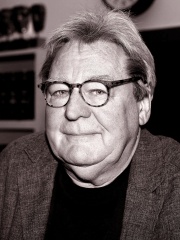
5. Alan Parker (1944 - 2020)
With an HPI of 71.91, Alan Parker is the 5th most famous British Film Director. His biography has been translated into 57 different languages.
Sir Alan William Parker (14 February 1944 – 31 July 2020) was an English film director, screenwriter and producer. His early career, beginning in his late teens, was spent as a copywriter and director of television advertisements. After about ten years of filming adverts, many of which won awards for creativity, he began screenwriting and directing films. Parker was known for using a wide range of filmmaking styles and working in differing genres. He directed musicals, including Bugsy Malone (1976), Fame (1980), Pink Floyd – The Wall (1982), The Commitments (1991) and Evita (1996); true-story dramas, including Midnight Express (1978), Mississippi Burning (1988), Come See the Paradise (1990) and Angela's Ashes (1999); family dramas, including Shoot the Moon (1982), and horrors and thrillers including Angel Heart (1987) and The Life of David Gale (2003). Parker's films won nineteen BAFTA awards, ten Golden Globes and six Academy Awards. His film Birdy was chosen by the National Board of Review as one of the Top Ten Films of 1984 and won the Grand Prix Spécial du Jury prize at the 1985 Cannes Film Festival. In 1984, Parker received the BAFTA for Outstanding British Contribution to Cinema, and in 2002 he was knighted for his services to the film industry. He was active in both British cinema and American cinema, along with being a founding member of the Directors Guild of Great Britain and lecturing at various film schools. In 2000, Parker received the Royal Photographic Society Lumière Award for major achievement in cinematography, video or animation. In 2013, he received the BAFTA Academy Fellowship Award, the highest honour the British Film Academy can give a filmmaker. Parker donated his personal archive to the British Film Institute's National Archive in 2015.

6. Peter Brook (1925 - 2022)
With an HPI of 71.67, Peter Brook is the 6th most famous British Film Director. His biography has been translated into 47 different languages.
Peter Stephen Paul Brook (21 March 1925 – 2 July 2022) was an English theatre and film director. He worked first in England, from 1945 at the Birmingham Repertory Theatre, from 1947 at the Royal Opera House, and from 1962 for the Royal Shakespeare Company (RSC). With them, he directed the first English-language production in 1964 of Marat/Sade by Peter Weiss, which was transferred to Broadway in 1965 and won the Tony Award for Best Play, and Brook was named Best Director. He also directed films such as an iconic version of Lord of the Flies in 1963. Brook was based in France from the early 1970s, where he founded an international theatre company, playing in developing countries, in an approach of great simplicity. He was often referred to as "our greatest living theatre director". He won multiple Emmy Awards, a Laurence Olivier Award, the Japanese Praemium Imperiale, the Prix Italia and the Europe Theatre Prize. In 2021, he was awarded India's Padma Shri.

7. Christopher Nolan (b. 1970)
With an HPI of 71.08, Christopher Nolan is the 7th most famous British Film Director. His biography has been translated into 94 different languages.
Sir Christopher Edward Nolan (born 30 July 1970) is a British and American filmmaker. Known for his Hollywood blockbusters with structurally complex storytelling, he is considered a leading filmmaker of the 21st century. Nolan's films have earned over $6 billion worldwide, making him the seventh-highest-grossing film director. His accolades include two Academy Awards, a Golden Globe Award and two British Academy Film Awards. Nolan was appointed a Commander of the Order of the British Empire in 2019 and received a knighthood in 2024 for his contributions to film. Nolan developed an interest in filmmaking from a young age. After studying English literature at University College London, he made several short films before his feature film debut with Following (1998). Nolan gained international recognition with his second film, Memento (2000), and transitioned into studio filmmaking with Insomnia (2002). He became a high-profile director with The Dark Knight trilogy (2005–2012) and found further success with The Prestige (2006), Inception (2010), Interstellar (2014) and Dunkirk (2017). After the release of Tenet (2020), Nolan parted ways with longtime distributor Warner Bros. Pictures and signed with Universal Pictures for the biographical thriller Oppenheimer (2023), which won him Academy Awards for Best Director and Best Picture. Nolan's work regularly features in the listings of best films of their respective decades. Infused with a metaphysical outlook, his films thematise epistemology, existentialism, ethics, the construction of time and the malleable nature of memory and personal identity. They feature mathematically inspired images and concepts, unconventional narrative structures, practical special effects, experimental soundscapes, large-format film photography and materialistic perspectives. His enthusiasm for the use and preservation of traditional film stock in cinema production as opposed to digital cameras has also garnered significant attention. He has co-written several of his films with his brother, Jonathan, and runs the production company Syncopy Inc. with his wife, Emma Thomas.

8. Richard Attenborough (1923 - 2014)
With an HPI of 71.07, Richard Attenborough is the 8th most famous British Film Director. His biography has been translated into 73 different languages.
Richard Samuel Attenborough, Baron Attenborough (; 29 August 1923 – 24 August 2014) was an English actor, film director and producer. Attenborough was the president of the Royal Academy of Dramatic Art (RADA) and the British Academy of Film and Television Arts (BAFTA), as well as life president of the Premier League club Chelsea. He joined the Royal Air Force during World War II and served in the film unit, going on several bombing raids over continental Europe and filming the conflict from the rear gunner's position. He was the older brother of broadcaster and nature presenter Sir David Attenborough and motor executive John Attenborough. He was married to actress Sheila Sim from 1945 until his death. As an actor, Attenborough is best remembered for his film roles in Brighton Rock (1948), I'm All Right Jack (1959), The Great Escape (1963), Seance on a Wet Afternoon (1964), The Sand Pebbles (1966), Doctor Dolittle (1967), 10 Rillington Place (1971), Jurassic Park (1993) and Miracle on 34th Street (1994). On stage, he appeared in the West End in 1952, originating the role of Detective Sergeant Trotter in Agatha Christie's murder mystery The Mousetrap, which has since become the longest-running play in London and the world. For his directorial debut in 1969's Oh! What a Lovely War, Attenborough was nominated for the BAFTA Award for Best Direction. He was additionally nominated for his films Young Winston (1972), A Bridge Too Far (1977) and Cry Freedom (1987). For the film Gandhi, in 1983, he won two Academy Awards, Best Picture and Best Director. The British Film Institute ranked Gandhi the 34th-greatest British film of the 20th century. Attenborough has also won four BAFTA Awards, six Golden Globe Awards, and the 1983 BAFTA Fellowship for lifetime achievement.

9. David Lean (1908 - 1991)
With an HPI of 71.06, David Lean is the 9th most famous British Film Director. His biography has been translated into 62 different languages.
Sir David Lean (25 March 1908 – 16 April 1991) was an English filmmaker and editor, widely considered one of the most important figures of British cinema. He directed the large-scale epics The Bridge on the River Kwai (1957), Lawrence of Arabia (1962), Doctor Zhivago (1965), Ryan's Daughter (1970), and A Passage to India (1984). He also directed the film adaptations of Charles Dickens novels Great Expectations (1946) and Oliver Twist (1948), as well as the romantic drama Brief Encounter (1945). Originally a film editor in the early 1930s, Lean made his directorial debut with 1942's In Which We Serve, which was the first of four collaborations with Noël Coward. Lean began to make internationally co-produced films financed by the big Hollywood studios, beginning with Summertime in 1955. The critical failure of his film Ryan's Daughter in 1970 led him to take a fourteen-year break from filmmaking, during which he planned a number of film projects which never came to fruition. In 1984, he had a career revival with A Passage to India, adapted from E. M. Forster's novel. This was a hit with critics, but it proved to be the last film that Lean directed. Lean is described by film critic Michael Sragow as "a director's director, whose total mastery of filmcraft commands nothing less than awe among his peers". He has been lauded by directors such as Steven Spielberg, Stanley Kubrick, Martin Scorsese, and Ridley Scott. He was voted 9th greatest film director of all time in the British Film Institute Sight & Sound "Directors' Top Directors" poll in 2002. He was nominated seven times for the Academy Award for Best Director, which he won twice for The Bridge on the River Kwai and Lawrence of Arabia, and he has seven films in the British Film Institute's Top 100 British Films (three of which are in the top five) and was awarded the AFI Life Achievement Award in 1990.
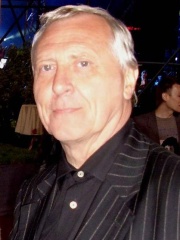
10. Peter Greenaway (b. 1942)
With an HPI of 69.18, Peter Greenaway is the 10th most famous British Film Director. His biography has been translated into 40 different languages.
Peter Greenaway, (born 5 April 1942) is a Welsh film director, screenwriter and artist. His films are noted for the distinct influence of Renaissance and Baroque painting, and Mannerist painting in particular. Common traits in his films are the scenic composition and illumination and the contrasts of costume and nudity, nature and architecture, furniture and people, sexual pleasure and painful death.
People
Pantheon has 175 people classified as British film directors born between 1864 and 2000. Of these 175, 108 (61.71%) of them are still alive today. The most famous living British film directors include Ridley Scott, Ken Loach, and Christopher Nolan. The most famous deceased British film directors include Alfred Hitchcock, Tony Scott, and Alan Parker. As of April 2024, 18 new British film directors have been added to Pantheon including Simon Monjack, Stephen Norrington, and Daphne Guinness.
Living British Film Directors
Go to all RankingsRidley Scott
1937 - Present
HPI: 78.61
Ken Loach
1936 - Present
HPI: 74.28
Christopher Nolan
1970 - Present
HPI: 71.08
Peter Greenaway
1942 - Present
HPI: 69.18
Danny Boyle
1956 - Present
HPI: 67.46
Stephen Frears
1941 - Present
HPI: 67.34
Mike Newell
1942 - Present
HPI: 66.69
Guy Ritchie
1968 - Present
HPI: 66.31
Adrian Lyne
1941 - Present
HPI: 64.51
Sam Taylor-Johnson
1967 - Present
HPI: 64.49
Steve McQueen
1969 - Present
HPI: 64.43
Tom Hooper
1972 - Present
HPI: 63.06
Deceased British Film Directors
Go to all RankingsAlfred Hitchcock
1899 - 1980
HPI: 82.16
Tony Scott
1944 - 2012
HPI: 72.09
Alan Parker
1944 - 2020
HPI: 71.91
Peter Brook
1925 - 2022
HPI: 71.67
Richard Attenborough
1923 - 2014
HPI: 71.07
David Lean
1908 - 1991
HPI: 71.06
Michael Powell
1905 - 1990
HPI: 69.08
Tony Richardson
1928 - 1991
HPI: 67.09
Frank Lloyd
1886 - 1960
HPI: 66.93
John Schlesinger
1926 - 2003
HPI: 66.12
David Hamilton
1933 - 2016
HPI: 64.88
George Albert Smith
1864 - 1959
HPI: 63.86
Newly Added British Film Directors (2025)
Go to all RankingsSimon Monjack
1970 - 2010
HPI: 50.38
Stephen Norrington
1964 - Present
HPI: 48.56
Daphne Guinness
1967 - Present
HPI: 48.43
Sharon Maguire
1960 - Present
HPI: 45.16
James Watkins
1973 - Present
HPI: 44.47
Richard Taylor
1965 - Present
HPI: 42.50
Joe Walker
1963 - Present
HPI: 42.20
Paul King
1978 - Present
HPI: 41.67
Asif Kapadia
1972 - Present
HPI: 41.51
Joanna Hogg
1960 - Present
HPI: 41.32
David Tattersall
1960 - Present
HPI: 41.30
Jesse Armstrong
1970 - Present
HPI: 40.95
Overlapping Lives
Which Film Directors were alive at the same time? This visualization shows the lifespans of the 25 most globally memorable Film Directors since 1700.

